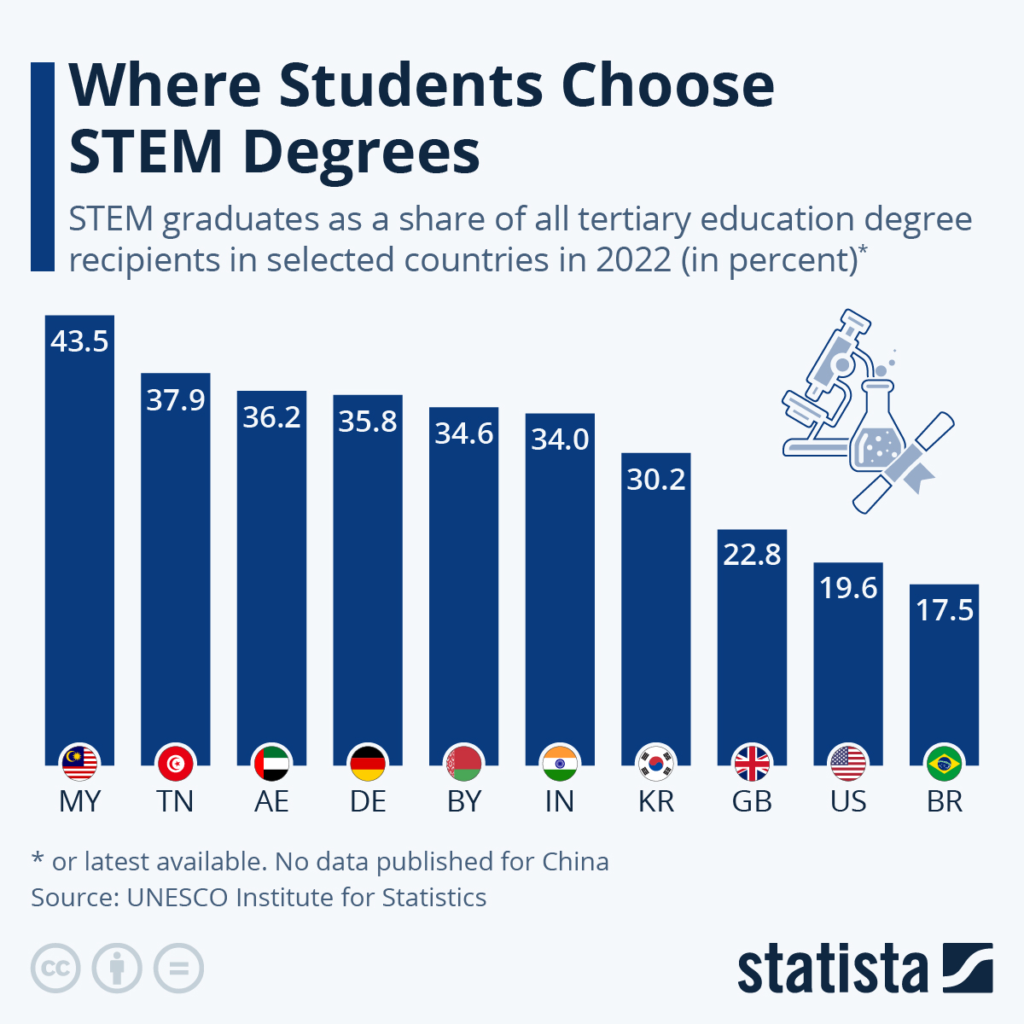Tunisia has second highest STEM graduates worldwide
Tunisia has recently come second in the ranking of countries with the highest number of STEM (Science, Technology, Engineering, and Mathematics) graduates produced in the world.
According to a recent report by the World Economic Forum, Tunisia produced 37.9 STEM graduates per 1,000 students in 2022, second only to Malaysia, which produced 43.5 STEM graduates per 1,000 students. The report analyzed data from over 100 countries, covering both high-income and low- and middle-income countries.
The other Maghreb countries; Algeria, Mauretania, and Morocco also have STEM degree recipients of over 29%, after Tunisia, due to the prevalence of computer engineering in the region.
No data is published for China in the latest available data. In 2016, the World Economic Forum said that China actually produced 4.7 million STEM graduates a year. Yet, according to the National Science Foundation, China classifies engineering and science fields quite broadly, leading to a lack of comparability in the data. The U.S. government agency counted 1.6 million Chinese science and engineering graduates in 2014.
The United Arab Emirates, Germany, Belarus, India, and South Korea have a substantial number of STEM graduates, with more than 30 percent of their graduates having STEM degrees. Typically, countries that produce a higher proportion of STEM graduates are concentrated in the Arab world, Eastern Europe, and East Asia.
Tunisia’s success in producing STEM graduates can be attributed to a number of factors. The country has invested heavily in education and has implemented policies aimed at promoting STEM education at all levels. This includes the creation of specialized STEM schools, the establishment of STEM centers of excellence, and the introduction of STEM-focused curriculum and programs.
The impact of Tunisia’s focus on STEM education can already be seen in the country’s economy. Tunisia has emerged as a hub for technology startups, and the country has attracted significant foreign investment in recent years.
Despite its success in producing STEM graduates, Tunisia faces challenges in ensuring that these graduates are able to find employment in their field of study. This requires the development of a supportive ecosystem that can help connect graduates with employers and provide them with the resources they need to succeed in their careers.




